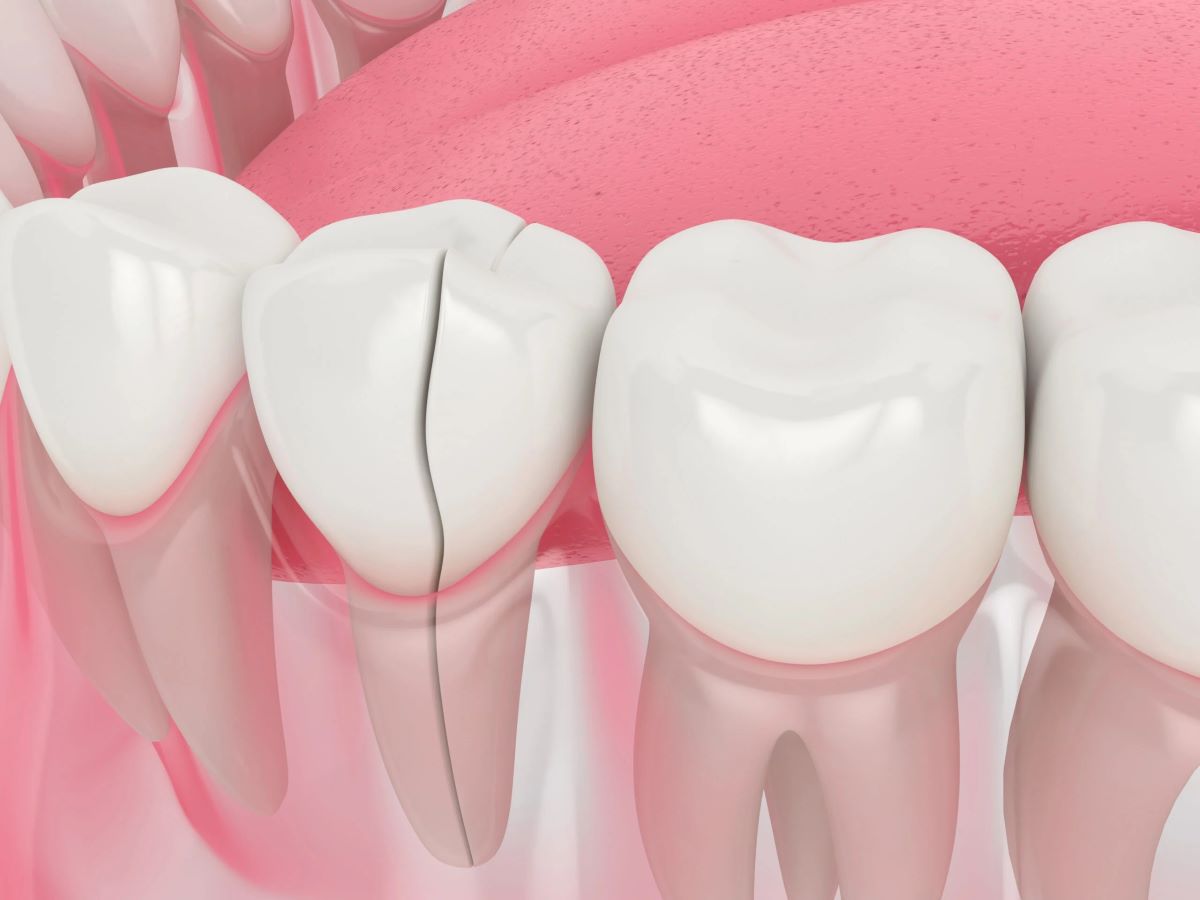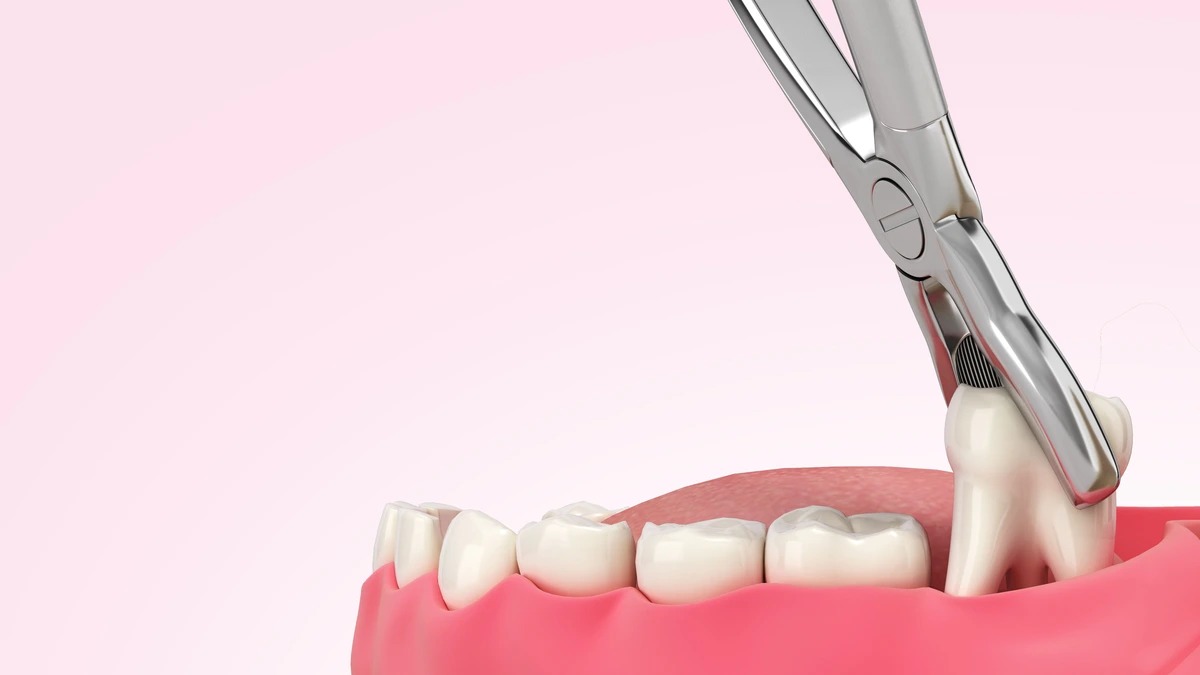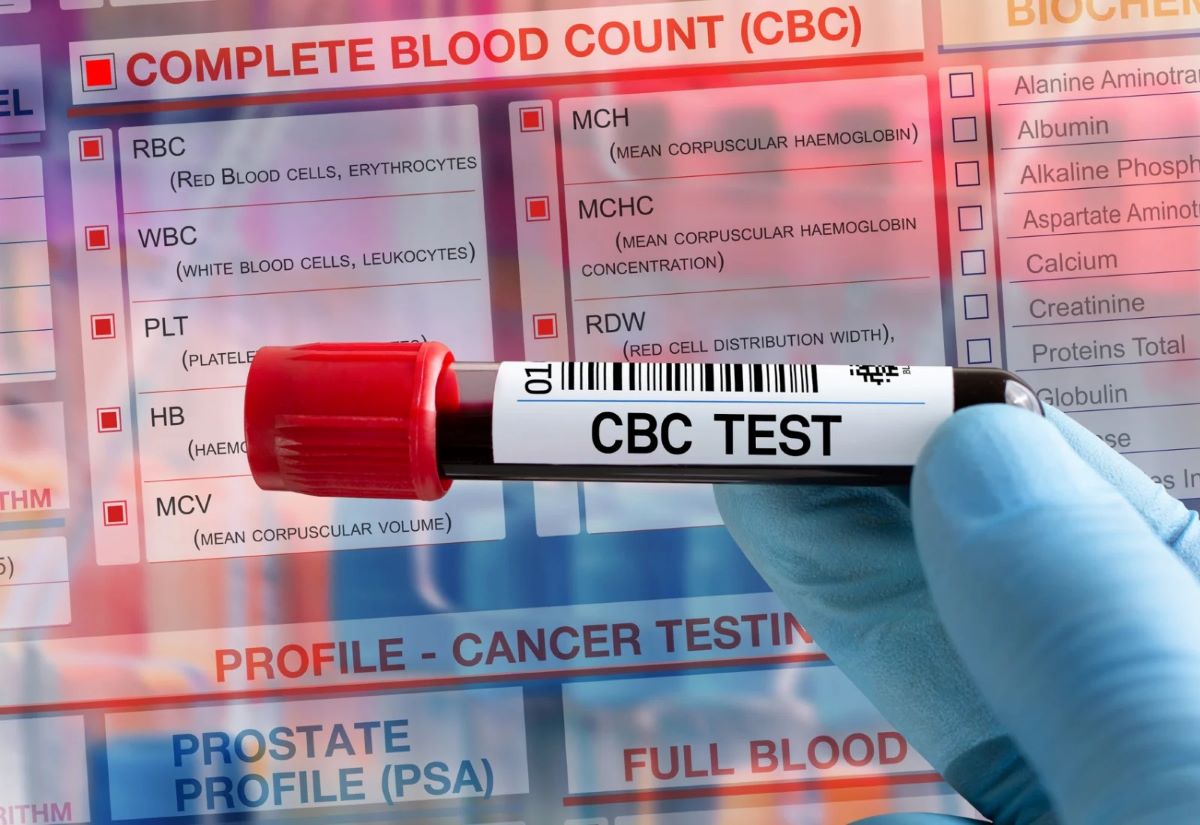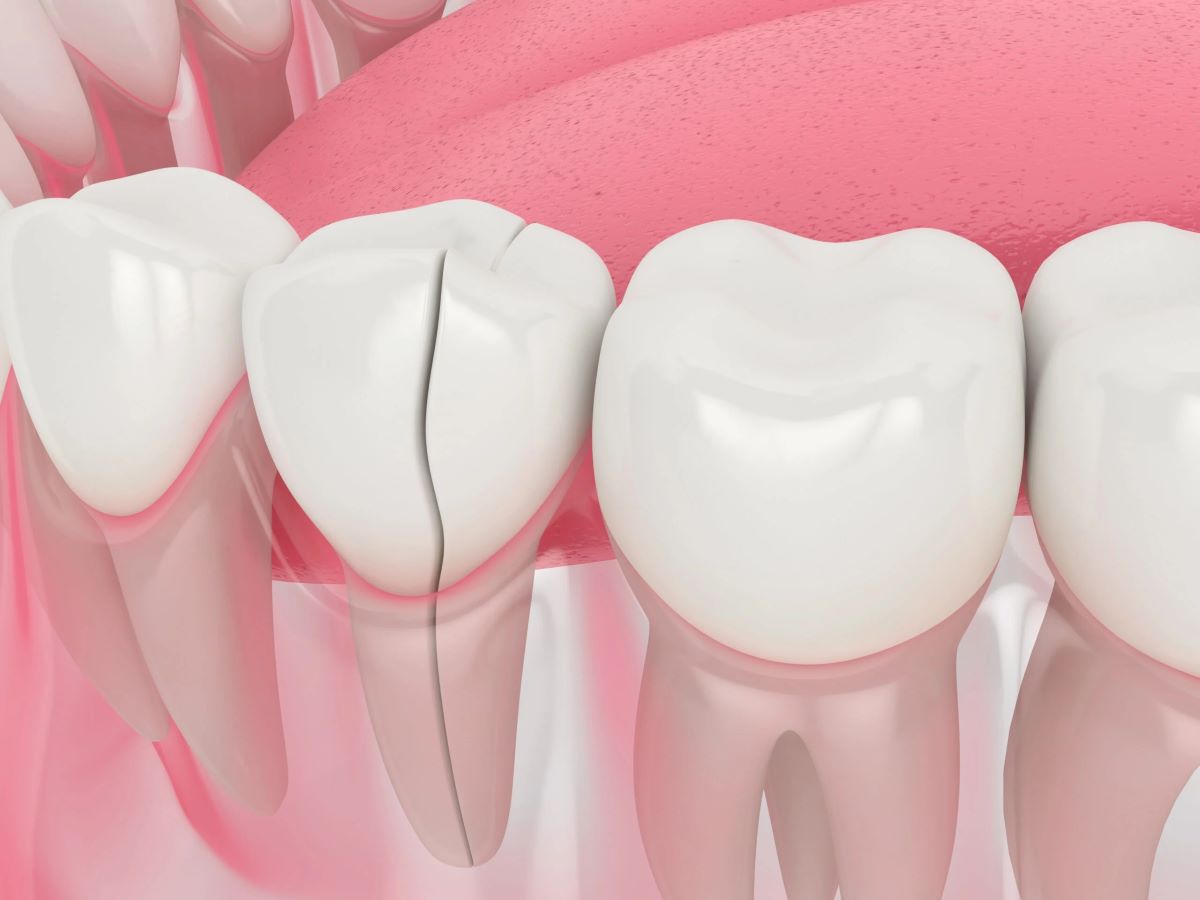Home>Finance>How Much Does It Cost To Fix A Broken Tooth Without Insurance?


Finance
How Much Does It Cost To Fix A Broken Tooth Without Insurance?
Published: November 14, 2023
Learn about the financial implications of fixing a broken tooth without insurance. Discover the costs involved and explore affordable options
(Many of the links in this article redirect to a specific reviewed product. Your purchase of these products through affiliate links helps to generate commission for LiveWell, at no extra cost. Learn more)
Table of Contents
Introduction
Having a broken tooth can be a painful and distressing experience, and it’s important to seek timely dental treatment to restore your oral health and function. However, one of the biggest concerns when it comes to fixing a broken tooth is the cost, especially if you do not have dental insurance.
Dealing with a broken tooth without insurance can be financially challenging, as dental procedures can vary in cost depending on the severity of the damage and the treatment required. Understanding the factors that influence the cost of fixing a broken tooth and exploring financing options can help you make an informed decision about your dental care.
In this article, we will discuss the factors affecting the cost of fixing a broken tooth without insurance, common treatments for a broken tooth, the average cost of dental procedures, and options for financing your dental treatment.
While it’s always advisable to consult a dental professional for an accurate assessment and treatment plan, the information presented here will give you a general understanding of the costs and options associated with fixing a broken tooth without insurance.
Factors Affecting the Cost of Fixing a Broken Tooth
The cost of fixing a broken tooth without insurance can vary based on several factors. Understanding these factors can help you estimate the potential cost and plan accordingly. Here are some key factors to consider:
- Severity of the damage: The extent and severity of the break in your tooth play a significant role in determining the cost of treatment. A minor chip or crack may only require cosmetic bonding, while a more severe break might involve root canal therapy and a dental crown.
- Treatment required: The specific treatment recommended by your dentist will impact the overall cost. For example, bonding, veneers, dental crowns, or even dental implants may be required to fix the broken tooth.
- Location of the tooth: The location of the broken tooth within your mouth can also influence the cost. Teeth in the front of your mouth (anterior teeth) may require more aesthetic procedures, such as veneers or cosmetic bonding, which can be more expensive.
- Additional procedures: In some cases, additional procedures may be necessary alongside fixing the broken tooth. For instance, if the break has caused damage to the tooth’s nerves or blood vessels, a root canal may be required, adding to the overall cost.
- Dentist’s expertise: The experience and expertise of the dentist performing the treatment can also affect the cost. Highly skilled dentists may charge more for their services, but they may also provide better outcomes and a higher level of patient care.
- Geographical location: The cost of dental treatment can vary depending on where you live. Factors such as the local cost of living, overhead costs of the dental practice, and regional competition can all impact the pricing.
It’s important to note that these factors are general considerations, and the actual cost of fixing your broken tooth without insurance can only be determined after a thorough examination and consultation with your dentist. Discussing the available treatment options and their associated costs with your dentist will give you a clearer picture of the expenses involved and allow you to make an informed decision based on your specific needs and budget.
Common Treatments for a Broken Tooth
When it comes to fixing a broken tooth, there are several treatment options available depending on the extent of the damage. Your dentist will evaluate the specific situation and recommend the most suitable treatment. Here are some common treatments for a broken tooth:
- Dental Bonding: Dental bonding is a procedure where a tooth-colored resin is applied and bonded to the broken tooth. This helps restore the shape and appearance of the tooth. It’s a relatively quick and affordable treatment option for small cracks or chips.
- Dental Veneers: Veneers are thin, custom-made shells that are bonded to the front surface of the teeth. They can be used to fix broken teeth, as well as improve the appearance of stained or misshapen teeth. Veneers provide a natural-looking, long-lasting solution.
- Dental Crowns: Dental crowns are tooth-shaped caps that are placed over the damaged tooth to restore its strength, shape, and function. They are typically used for more severe cases of broken teeth where the tooth structure is significantly compromised. Crowns are durable and can last for many years with proper care.
- Root Canal Therapy: If the break in the tooth extends to the pulp chamber, where the nerves and blood vessels are located, a root canal may be necessary. During a root canal procedure, the damaged pulp is removed, and the root canal is cleaned, filled, and sealed. This helps prevent infection and saves the tooth from extraction.
- Tooth Extraction and Replacement: In some cases where the tooth is severely damaged and cannot be saved, extraction may be necessary. After extraction, there are several options for replacing the missing tooth, such as dental implants, bridges, or removable dentures.
It’s crucial to note that the recommended treatment will depend on factors like the severity of the break, the location of the tooth, and your overall oral health. Your dentist will explain the options available to you and work with you to create a personalized treatment plan that suits your needs and budget.
Remember, seeking prompt dental treatment for a broken tooth is essential to prevent further complications and ensure the long-term health and aesthetics of your smile. Schedule an appointment with your dentist as soon as possible to address any dental emergencies and restore your broken tooth to its optimal function and appearance.
Average Cost of Dental Procedures for a Broken Tooth without Insurance
The cost of dental procedures for a broken tooth can vary widely depending on the specific treatment required and the geographical location. It’s important to note that the following figures are rough estimates and can differ based on individual circumstances. Here is a breakdown of the average costs of common dental procedures for a broken tooth:
- Dental Bonding: The cost of dental bonding typically ranges from $100 to $400 per tooth. However, this can vary depending on the complexity of the bonding procedure and the dentist’s expertise.
- Dental Veneers: The cost of dental veneers can range from $500 to $2,500 per tooth. The price variation is influenced by factors such as the type of material used for the veneers (e.g., composite resin or porcelain) and the location of the dental practice.
- Dental Crowns: The cost of dental crowns can range from $800 to $1,500 per tooth. This cost depends on factors such as the type of crown (e.g., metal, porcelain-fused-to-metal, all-ceramic) and the complexity of the case.
- Root Canal Therapy: The cost of root canal therapy can range from $500 to $2,000 per tooth. The price varies based on factors like the location of the tooth, the severity of infection or damage, and the need for a dental crown to protect the treated tooth.
- Tooth Extraction: The cost of a simple tooth extraction can range from $75 to $300 per tooth. However, if a surgical extraction or additional procedures such as bone grafting are required, the cost may increase.
- Dental Implants: Dental implants are a more permanent solution for replacing a missing tooth. The cost of a single dental implant can range from $1,500 to $6,000, depending on various factors such as the location of the dental practice, the need for additional procedures, and the type of implant used.
It’s important to remember that these are average cost ranges and can vary significantly based on factors such as the complexity of the case, the dental professional’s experience, and your geographical location. Additionally, there might be additional charges for consultations, X-rays, and follow-up visits.
To get an accurate estimate of the cost for fixing your broken tooth, it is recommended to visit a dental professional for a thorough examination and consultation. They will provide you with a detailed treatment plan and a breakdown of the associated costs specific to your case.
Options for Financing Dental Treatment without Insurance
If you don’t have dental insurance, financing your dental treatment for a broken tooth can be a concern. However, there are several options available to help you manage the cost and ensure you receive the necessary dental care. Here are some common options for financing dental treatment without insurance:
- Dental Payment Plans: Many dental practices offer in-house payment plans that allow you to spread out the cost of your treatment over a period of time. These plans often have low or no interest, making it easier to manage your payments.
- Third-Party Financing: There are financing companies that specialize in helping patients cover dental expenses. These companies offer flexible payment options and competitive interest rates. The application process is usually simple, and approval is often based on credit history.
- Credit Cards: If you have a credit card with a sufficient limit, you can use it to pay for your dental treatment. Some credit cards even have promotional offers with 0% APR for a limited time. Be cautious with high-interest credit cards, as the interest charges can add up if you cannot pay off the balance quickly.
- Health Savings Account (HSA) or Flexible Spending Account (FSA): If you have these types of accounts, you can use the funds to cover your dental expenses. These accounts allow you to contribute pre-tax money, reducing your overall taxable income. Check with your employer or financial institution for more information on eligibility and contribution limits.
- Discount Dental Plans: Consider joining a discount dental plan, which offers reduced fees for dental services. These plans typically involve paying an annual membership fee in exchange for discounted rates at participating dental providers. While it doesn’t cover the full cost, it can help reduce the financial burden.
- Charitable Organizations and Dental Schools: Some charitable organizations and dental schools provide low-cost or free dental treatment to individuals who meet certain criteria. Research local organizations and dental schools in your area to explore these options.
- Negotiating with your Dentist: Talk to your dentist about your financial situation. They may be willing to work out a payment plan or offer a discounted rate. Dentists understand that dental care can be expensive, and many are compassionate and willing to work with patients to find a solution.
It’s important to remember that while financing options can help make dental treatment more affordable, you should also consider the long-term benefits of investing in your oral health. Neglecting treatment for a broken tooth can lead to further complications and more extensive and costly procedures down the line.
Prioritize your oral health and explore the available options to finance your dental treatment. Consult with your dentist to discuss the various financing options and determine the one that best suits your budget and needs.
Conclusion
Dealing with a broken tooth can be both physically uncomfortable and financially challenging, especially without dental insurance. However, it’s essential to prioritize your oral health and seek timely treatment to prevent further complications. While the cost of fixing a broken tooth without insurance can vary based on several factors, understanding these factors and exploring financing options can help you navigate the expenses associated with dental care.
Factors that influence the cost include the severity of the damage, the specific treatment required, the location of the tooth, additional procedures needed, the expertise of the dentist, and the geographical location. By discussing these factors with your dentist, you can get a better idea of the potential costs and plan accordingly.
Common treatments for a broken tooth include dental bonding, dental veneers, dental crowns, root canal therapy, and tooth extraction. The cost of these procedures can vary, and it’s crucial to consult with your dentist to determine the most suitable treatment option for your situation.
When it comes to financing dental treatment without insurance, there are options available. These include dental payment plans, third-party financing, credit cards, HSAs or FSAs, discount dental plans, charitable organizations, dental schools, and negotiating with your dentist. Exploring these options can help make dental care more affordable and manageable.
Ultimately, it’s important to prioritize your oral health and seek treatment for your broken tooth. Delaying treatment can lead to further complications and potentially higher costs in the future. Schedule an appointment with your dentist as soon as possible to discuss your options, get an accurate estimate of the costs, and create a treatment plan tailored to your needs and budget.
Remember, dental care is an investment in your overall well-being, and taking proactive steps to fix a broken tooth can help restore your oral health, function, and confidence. Don’t let financial concerns hold you back from seeking the care you need.














